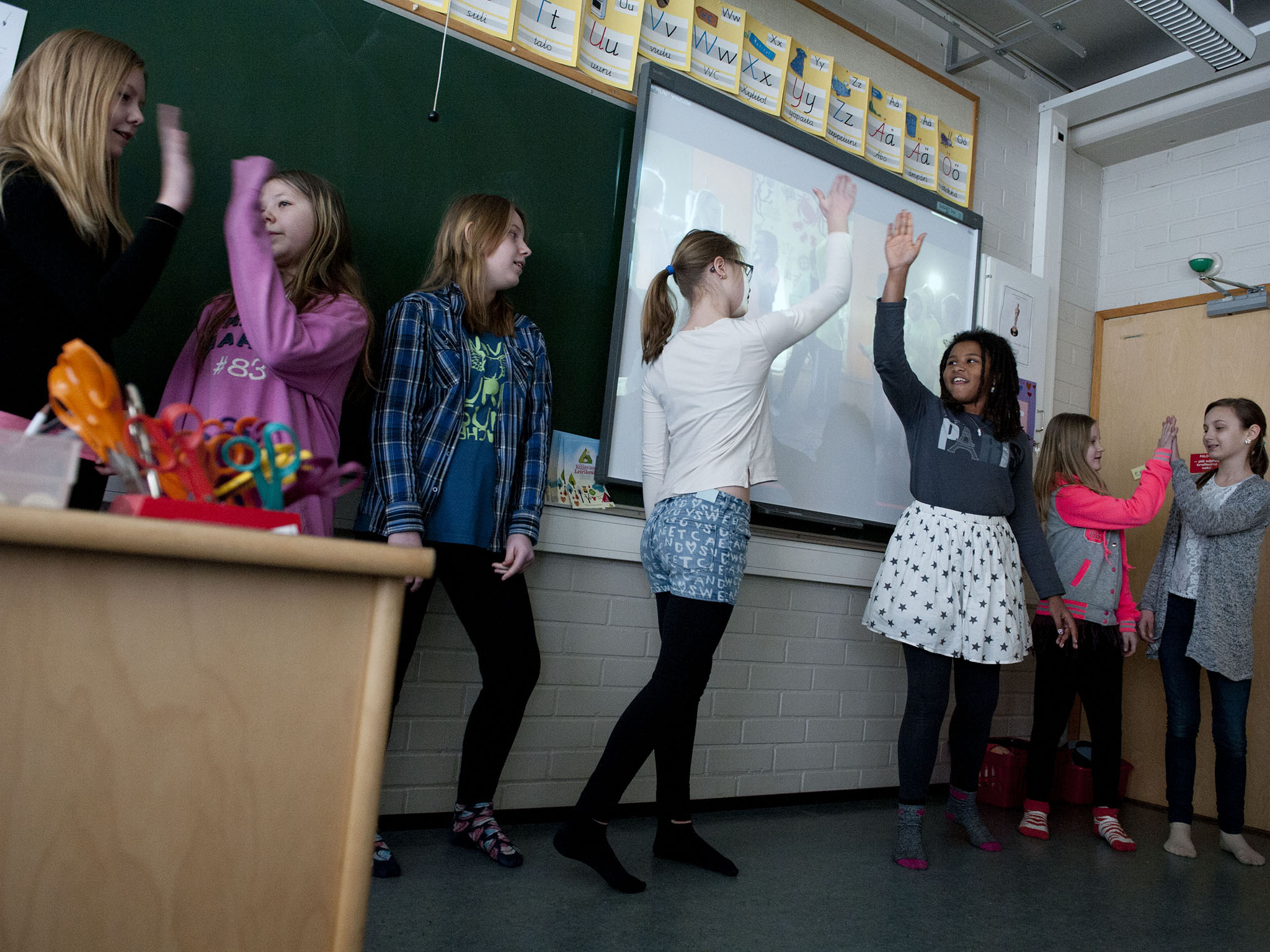Finland Education System ’Either we prepare them for life or for exams. We choose the first.’
Common category: Author : Saravana
Finland has the world's best Education System.According to the triennial research of the Organization for Economic Co-operation and Development, Finnish students show the highest standard of knowledge in the world. They read more than other kids and rank first in science and fifth in math.
Secondary education in Finland includes two stages:
- Lower (alakoulu), from 1st to 6th grade
- Upper (yläkoulu), from 7th to 9th grade
- 10th grade is designed for those who want to improve their grades.
The 7 principles of secondary education in Finland:
1. Equality
Of schools.
All schools are equally financed and equipped. Most of them are public (only some are semi-public) which usually means they use an alternative educational system like Montessori or Waldorf, or teach in a foreign language like English, German, or French. Moreover, Finns seek to preserve all of the languages spoken on their territory: it is possible to receive secondary education in Swedish (second main language) or Sami (one of the official minority languages).
Of subjects.
Concentration on one subject is not encouraged.
Of parents.
It is not allowed for a teacher to enquire about the place of work of a parent.
Of students.
Students are not divided into classes according to their performance or assumed career preferences. Furthermore, there are no ’good’ or ’bad’ students: both gifted and physically or mentally challenged kids study together. Finns work hard on the integration of special students.
Teachers don’t give emphasis to their personal attitude towards students. All relationships should be smooth, and if they aren’t it leads to a termination of a contract with a teacher.
2. Not only education is free. Students don’t have to pay for anything
- lunch
- tours, museums, and all out-of-class activities
- a school bus that picks up and drops off students if a school is more than 2 km away
- school books, writing supplies, calculators, and tablets
3. Individual approach
An individual education plan is designed for every child. Books, exercises, homework, and in-class activities — everything is selected for each child individually and graded accordingly. Tutoring and remedial teaching are also available for those who require it.
4. Practical approach
Finnish people say: ’Either we prepare them for life or for exams. We choose the first.’ That is why there are no exams in Finnish schools. The teacher is the one to decide whether or not to carry out midterms and tests. There is only one compulsory standard test — a final to write before graduation from secondary school. But teachers do not give their students any special training for it.
School is the place to learn useful skills that can come in handy in real life. Finnish kids know how to do their taxes, create promo websites, calculate a percentage discount, or draw a wind rose to find one’s way around.
5. Trust
All relationships in Finnish schools are built on trust. For instance, there are no sudden checks on teachers and no one is imposing anything on them. The single unified education system only gives general recommendations, allowing teachers to choose an adequate method freely. Students are allowed to occupy themselves by something quiet if they are not caught up in what is going on in class or have finished doing their task. It is generally thought that the student is the one to choose what is best for him.
6. Voluntariness
Knowledge is never forced upon students. Teachers do their best to involve children in academic activities, but if they are not interested in or not capable of studying, they are oriented towards a more practical profession. No one is going to keep giving F’s to such students. It is essential to be well-prepared for adult life, and that’s why repeating a year is not considered shameful.
7. Independence
Finnish teachers help their students learn how to think, analyze, and gain knowledge independently. It’s essential to be able to find necessary information from open sources, while memorizing countless formulas, especially with the Internet available, can be viewed as a waste of time and energy.
What about grades?
Grades are given according to a ten-point scale, but from 1st through 3rd grade there are no grades at all. All schools have an electronic blackboard system called ’Wilma.’ It allows teachers, social workers, doctors, and psychologists to give feedback to students and keep in touch with their parents. No student fears receiving a bad grade in Finland: grades are used to motivate students, not to discourage them. Nor do the teacher’s reputation and salary depend on his or her students’ grades.
Additional information:
- School premises are not fenced or guarded.
- In class, children are allowed to sit on the floor or carpet.
- There is no school uniform or any recommendations on how to dress. But children do have to bring a second pair of light shoes with them, especially in winter.
- When it is warm, classes are usually taught outside. Younger students are taken outside during every break.
- There is hardly ever any homework. Children should enjoy their free time! And parents are not advised to help their kids with homework: teachers say it’s much better to organize a family visit to a museum, go hiking, or swimming together.
- Finns don’t claim that their education system is perfect. But they never stop fine-tuning and ameliorating this system, constantly researching how it corresponds to the latest social changes and scientific developments.
Post Your Comments for this Article
Related News
-
1.5 million jobs in rural India within one year
2017-06-16 11:45:48
-
Mumbai University offers new courses
2017-06-16 10:58:44
-
Mega Education Conclave In Srinagar
2017-05-22 09:53:23
-
Tamil Nadu SSLC Results 2017
2017-05-19 10:11:46



